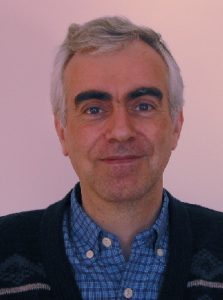
Guest: Prof. Dr. Yannick Mellier, Institut d’Astrophysique de Paris, Sorbonne Universite, Paris and CEA/IRFU/DAp Saclay, France
When: April 16th, 2018, 11h00
Where: Institute of Space Science – ISS (Auditorium)
Abstract:
The ESA Euclid space mission aims to understand why the expansion of the Universe is accelerating and pin down the source responsible for the acceleration. It will uncover the very nature of dark energy and gravitation by measuring with exquisite accuracy the expansion rate of the Universe and the growth rate of structure formation in the Universe. To achieve its objectives Euclid will observe the distribution of dark matter in the Universe by measuring shapes of weakly distorted distant galaxies lensed by foreground cosmic structures with the VIS imaging instrument. In parallel, Euclid will analyse the clustering of galaxies and the distribution of clusters of galaxies by using spectroscopy and measuring redshifts of galaxies with the NISP photometer and spectrometer instrument. The Euclid mission will observe one third of the sky (15,000 deg2) to collect data on several billion galaxies spread over the last ten billion years. In parallel to the space mission, the Euclid survey also comprises photometric and spectroscopic observations that will be used jointly with the Euclid satellite data to get photometric redshifts of all lensed galaxies. Altogether the Euclid data set will be an exceptional gold mine for cosmology and fundamental physics but also for all fields in astrophysics. In this presentation will describe the scientific objectives of the mission, the organisation of one of the hugest and most complex space consortium as well as the technology necessary to build the experience. Finally, I will present the most recent forecasts and constraints on dark energy, gravity and dark matter as well as the expectation for the physics of inflation or neutrinos, and all other domains of astronomy.
Contact person: Dr. Lucia A. Popa (ISS) <lpopa[at]spacescience[dot]ro>
